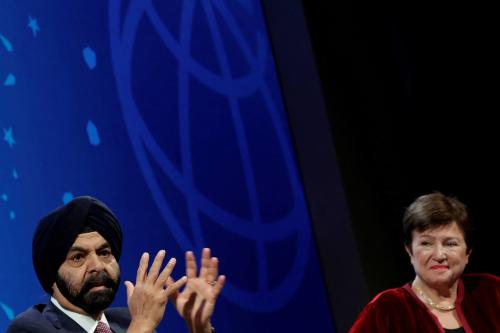INTRODUCTION First, let me thank Oxfam—Ms Romero and Ms Stuart, in particular—for inviting me to join such a distinguished Panel today. The pleasure of being here is compounded by the fact that I spent some of the most rewarding years of my professional life in this institution.
The questions posed to this Panel by Ms. Romero are all challenging indeed and, let me be straight, there are no clear-cut answers. In my brief remarks:
- I’ll touch upon why the IMF should engage with low-income countries and how.
- I’ll then review the status of the IMF’s policies towards low-income member countries by pointing to the main challenges.
- Given the time constraints, I won’t be able to elaborate on the governance issue but I had a chance to express my views on this in a paper published last year with Professor Ngaire Woods [in the References].
Historical background
To be sure, even the Founding Fathers of the institution had trouble grappling with these issues. Convened at the end of the Second World War, the Bretton Woods Conference aimed to establish a universal financial and economic order, with generally applicable solutions to the problems of the world. The participants carefully avoided distinguishing between groups of members in drafting the IMF’s Articles of Agreement. The Indian delegation proposed a reference to the role of the IMF in low-income countries to be added in the section devoted to the “purpose” of the Fund in Article I, but this proposal was ruled out [James, 2007].
In all fairness, it was only in subsequent years that the developing world would define itself politically and economically. Politically, as low-income countries would acquire independence from their colonial powers. Economically, as the international community would start contemplating the challenges of these countries within the broader framework of development.
As the newly independent low-income countries would join the membership of this institution, the Fund would gradually find itself drawn into an endless debate, one that continues at this very moment here. Only a few days ago, for instance, I was looking at the IMF’s website and the headline read something along the lines of “The IMF moves to clarify its role in low-income countries.”



Commentary
The Role of the IMF in Low-Income Countries
September 24, 2007